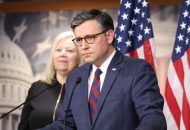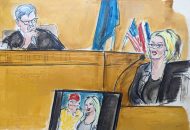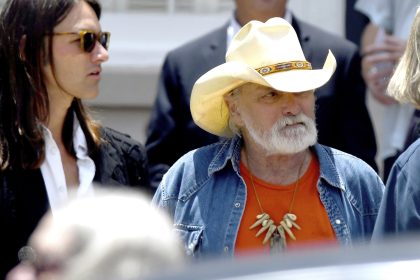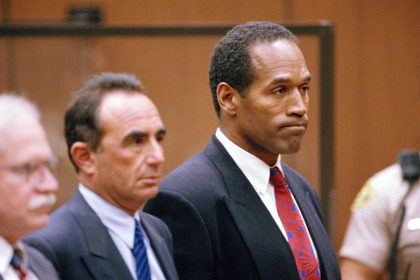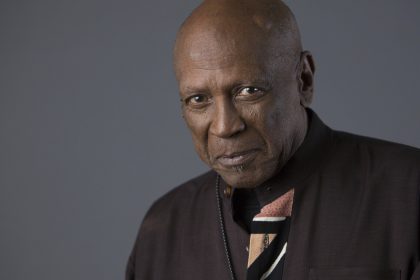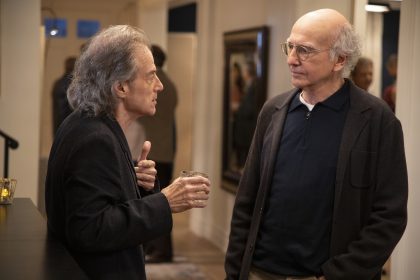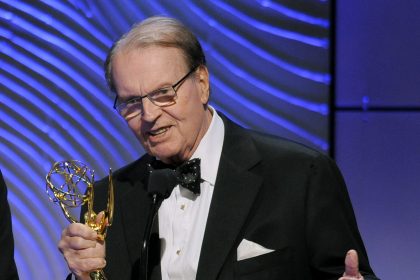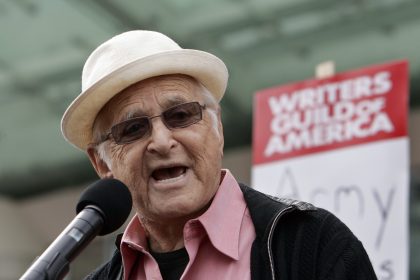Samuel Sandoval, One of the Last ‘Navajo Code Talkers’ Dies
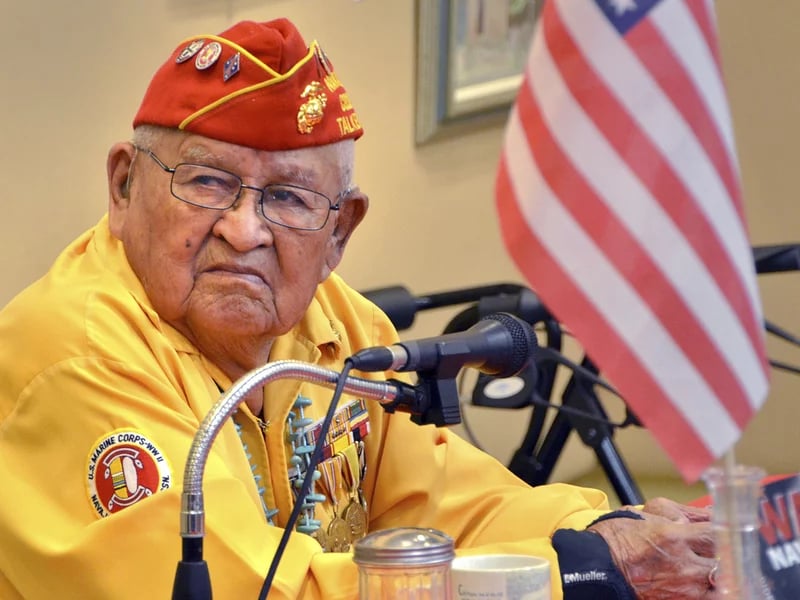
FLAGSTAFF, Ariz. — Samuel Sandoval, one of the last remaining Navajo Code Talkers, a band of Native American heroes who transmitted messages during World War II using a code based on their native language, is dead.
Sandoval reportedly died late Friday at a hospital in Shiprock, New Mexico. He was 98.
“Today, it is with a heavy heart that I extend my condolences to Samuel’s wife Malula, their children, grandchildren, and the entire Navajo Nation as they mourn the loss of a hero,” said Rep. Tom O’Halleran, D-Ariz., who shared news of Sandoval’s death with members of the media.
According to the Central Intelligence Agency, Native American languages had long been used in the transmission of secret tactical messages. In fact, during World War I, the use of the Choctaw language had been critical in the defeat of the Germans.
But by World War II, use of the languages was a poorly kept secret and both Germany and Japan had sent students to the U.S. to study the languages and cultures of the Choctaw, Cherokee and Comanche.
As a result, many were skeptical when it was once again suggested “Code Talkers” be employed after the Japanese attack on Pearl Harbor in December 1941. That is until it was pointed out to the government that Navajo is a particularly complex language.
Not only that, Navajo is not a written language, and very few people who aren’t members of the Navajo Nation can speak it.
In May 1942, the U.S. Marines gathered 29 Navajo recruits at Camp Elliott near San Diego, California, and asked them to develop a new code based on their language.
The Marines then took the code to the next level, by further encoding it with word substitution.
During the course of the war, about 400 Navajos participated in the code talker program. With Sandoval’s death, only three remain: Peter MacDonald, John Kinsel Sr. and Thomas H. Begay.
“In covert missions attached to every major Marine operation in the Pacific theater, the Navajo Code Talkers used their native language to send messages in unbreakable code and turn the tide of World War II,” O’Halleran said.
“For years after, they had to keep their selfless service secret from their families and their tribe until the Code Talkers mission was declassified in 1968,” he continued. “Their sacrifice for the safety of our nation cannot be overstated; the Code Talkers were paramount to America’s victory, preserving our democracy and ending years of world strife. The Navajo Code Talkers must never be forgotten.”
Sandoval was born in Nageezi near Chaco Culture National Historical Park in northwestern New Mexico in 1922.
He enlisted in the Marine Corps after attending a Methodist school where he was discouraged from speaking Navajo. He was one of the first group of volunteers to become involved in the code talker program and helped recruit many of the others.
Sandoval served in five combat tours and was honorably discharged in 1946. Along the way he earned a Navy Unit Commendation Ribbon, a Combat Action Ribbon, a China Service Medal, a World War II Victory Medal, a Navy Occupation Service Medal with Asia Clasp and an Asiatic–Pacific Campaign Medal with a silver star, in lieu of five bronze stars.
Though initially ordered not to talk about the role they played in the World Wars, it later reportedly became an immense source of pride for Sandoval and his late brother, Merrill Sandoval, who also was a code talker.
The two became talented and in-demand public speakers, always making their fellow Marines the true heroes of their tales.
Sandoval’s health had been declining in recent years, including a fall in which he fractured a hip. His last trip was to New Orleans in June where he received the American Spirit Award from the National World War II Museum.
His widow, Malula Sandoval, told the Associated Press, “Sam always said, ‘I wanted my Navajo youngsters to learn, they need to know what we did and how this code was used and how it contributed to the world.’ That the Navajo language was powerful and always to continue carrying our legacy.”
Navajo President Jonathan Nez said in a written statement Sandoval will be remembered as a loving and courageous person who defended his homeland using his sacred language.
“Navajo Code Talker Samuel Sandoval will always be remembered as a loving and courageous person who sacrificed more than we will ever know to defend our homelands using our sacred Navajo language. We are saddened by his passing, but his legacy will always live on in our hearts and minds. On behalf of the Navajo Nation, we offer our prayers and heartfelt condolences to his wife, Malula Sandoval, his children, and many loved ones,” said Nez.
“The Navajo people mourn the loss of a grandfather, father, brother and uncle who dedicated his life to uplift communities. Navajo Code Talker Sam Sandoval lived a life where character, courage, honor, and integrity guided his journey. His impact on history will forever be remembered and we sincerely share our love with his family during this time. May he rest among our most resilient warriors,” said Navajo Speaker Seth Damon.
No announcement has been made regarding funeral services. Nez said it would likely be announced via social media later this week.
Navajo Code Talkers Day is recognized each year on Aug. 14. O’Halleran said he will attend the Navajo Code Talker Day celebration in Window Rock, Arizona, honoring the three remaining code talkers and their service to our nation.
Dan can be reached at [email protected] and at https://twitter.com/DanMcCue.










